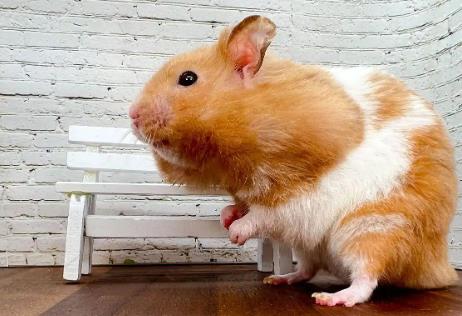2-3 years (average lifespan in captivity)
The lifespan of Syrian hamsters (also known as golden hamsters or teddy bear hamsters) is affected by factors such as breed characteristics and feeding conditions. Based on comprehensive and highly authoritative search results, the lifespan range and key information are as follows:

I. Basic Lifespan Range
General Lifespan
Most sources indicate that the average lifespan of Syrian hamsters is 2-3 years. Some individuals can live up to 3.5 years under ideal conditions.
In the wild, their lifespan is shorter (1-2 years). In captivity, due to stable food sources and a reduced number of natural predators, their lifespan can reach 2-4 years.
Cases where they live beyond 3 years are relatively rare and rely on high-quality care.
Breed Differences
Because Syrian hamsters are larger in size (with a body length of 12-22 centimeters) and have stronger physiological functions, their lifespan is usually 0.5-1 year longer than that of dwarf hamsters.
II. Key Factors Affecting Lifespan
Genetics and Breed Characteristics
Individuals carrying longevity genes (such as some relatives of Roborovski hamsters) may live up to 3.5 years. However, inbreeding is likely to lead to congenital diseases.
The solitary nature of Syrian hamsters reduces the stress of fighting, which helps to extend their lifespan.
Feeding Management
Diet: Avoid giving them chocolate and fried foods. Provide high-quality hamster food and fresh vegetables.
Environment: Keep the temperature between 20-26°C. Equip the cage with an appropriate-sized running wheel and a quiet living place.
Emotions: Minimize scaring them. Reduce their anxiety through regular interaction and by providing toys (such as tunnels and chew sticks).
III. Special Cases and Precautions
Some individual reports suggest that golden hamsters may live up to 4-5 years, but this information is only from sources with relatively low authority, so it should be carefully considered.
If there is an unusually long lifespan (such as more than 4 years), it is recommended to check whether there are any recording errors or special care conditions.
